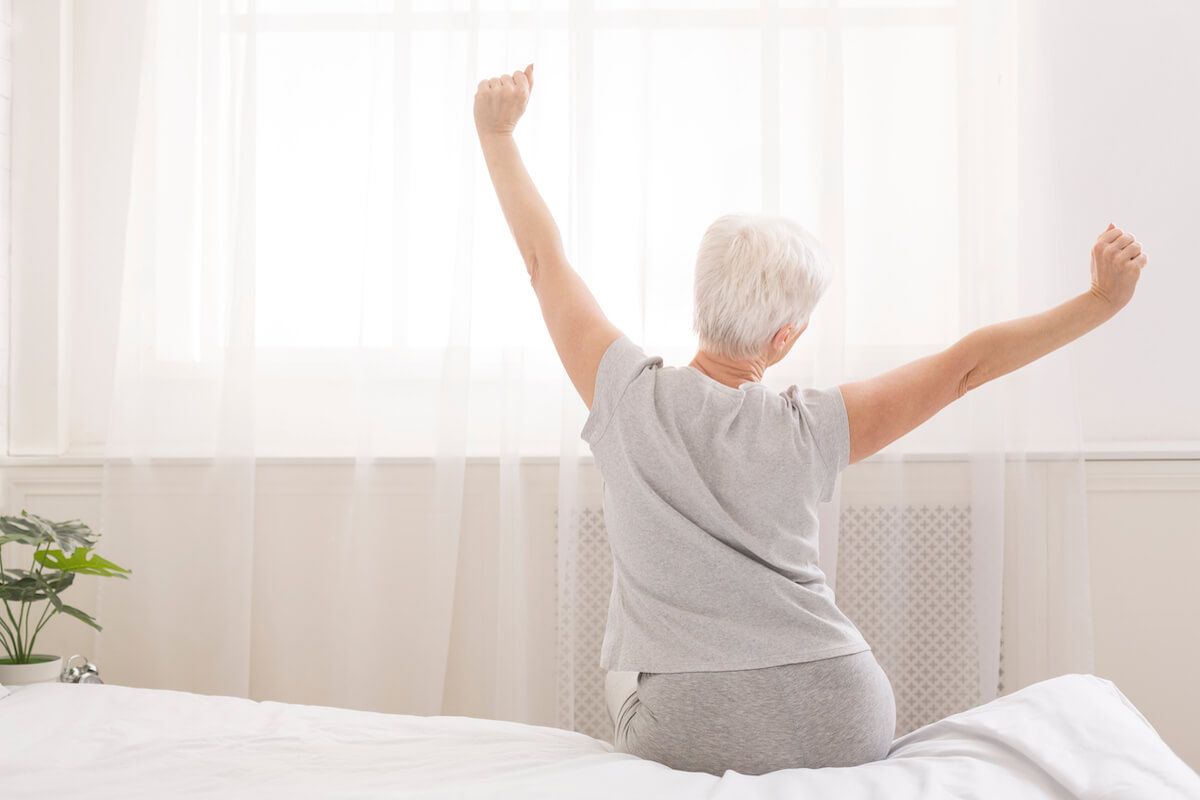
An individual can expect to go through many age-related changes. While natural, these changes have the potential to create shifts in a person’s typical routine. One of these common changes comes in the form of sleeping habits. So, do older people need less sleep, and how does the circadian rhythm change over time?
At Brickmont Assisted Living, our senior living communities near Atlanta provide exceptional care and helpful resources to individuals and families as they navigate their unique aging journeys.
If you’re curious if older people need less sleep or if you want to improve your sleeping habits to ensure you get a good night’s rest, here’s a guide to understanding changes to sleeping habits.
What is Circadian Rhythm?
A person’s circadian rhythm is the internal clock that allows the body to regulate a sleep pattern. In other words, it’s in charge of when you fall asleep and when you wake up.
The circadian rhythm naturally follows sunlight; during the daytime, your body knows it’s time to be awake due to the light outside. Your core temperature also becomes elevated during this time, and your body’s internal and external stimuli signal that it’s time to be awake and active, which also contributes to the internal clock.
However, several factors can affect a person’s circadian rhythm, causing the natural cycle of knowing when it’s light or dark outside to be out of sync. For instance, one of the most common reasons is jet lag or later work shifts, in which a person experiences time changes they’re not used to. Light from electronic devices at night can also confuse your biological clock, as it can mimic the outdoor light that signals our bodies to stay awake.
How Do Our Circadian Rhythms Change with Age?
Beginning around the age of 60 to 65, circadian rhythms start to occur earlier in the day. This is known as phase advance and means that older adults perform mental tasks better in the morning while becoming sleepier earlier in the evening than they might have in the past.
These changes occur gradually over time, and a person’s circadian rhythm shifts by approximately a half hour every decade after they reach their middle age years. It’s also worth noting that if an older adult doesn’t sleep within their shifted circadian rhythm, it can lead to restless or fitful sleep.
Researchers still don’t have a solid reason why the circadian rhythm changes with a person’s age, but it’s been said to be due to biological and environmental factors.
Aging and Sleeping Habits
When it comes to sleep quality, older adults typically spend more time in light sleep and less time in deep sleep and rapid eye movement (REM) sleep; light sleep is not as restful as the latter forms of sleep, which is why it can be common for older adults to wake up multiple times throughout the night. It’s also commonplace for older adults to fall asleep and wake up more suddenly than younger generations.
In general, older adults get less sleep than younger adults, typically sleeping only six and a half to seven hours a night. However, this amount of sleep falls short of the recommended amount of seven to nine hours per night.
How to Get a Good Night’s Sleep
Just because your circadian rhythm changes with age doesn’t mean you have to stay tired! There are many ways to improve your sleep habits, such as:
- Follow a regular sleep schedule
- Avoid napping in the late afternoon or early evening
- Use low lighting in the evenings, and avoid using your computer, cell phone, or tablet in your bedroom before going to bed
- Stay away from caffeine later in the evening, and avoid eating large meals close to bedtime
At Brickmont Assisted Living, our goal is to provide expert service, authentic care, and compassionate hospitality in our senior living communities across Atlanta. We’re dedicated to sharing helpful resources to enhance wellness and further align with our mission and values. Discover more about our communities and visit our Brickmont blog for helpful tips and resources!



.png)